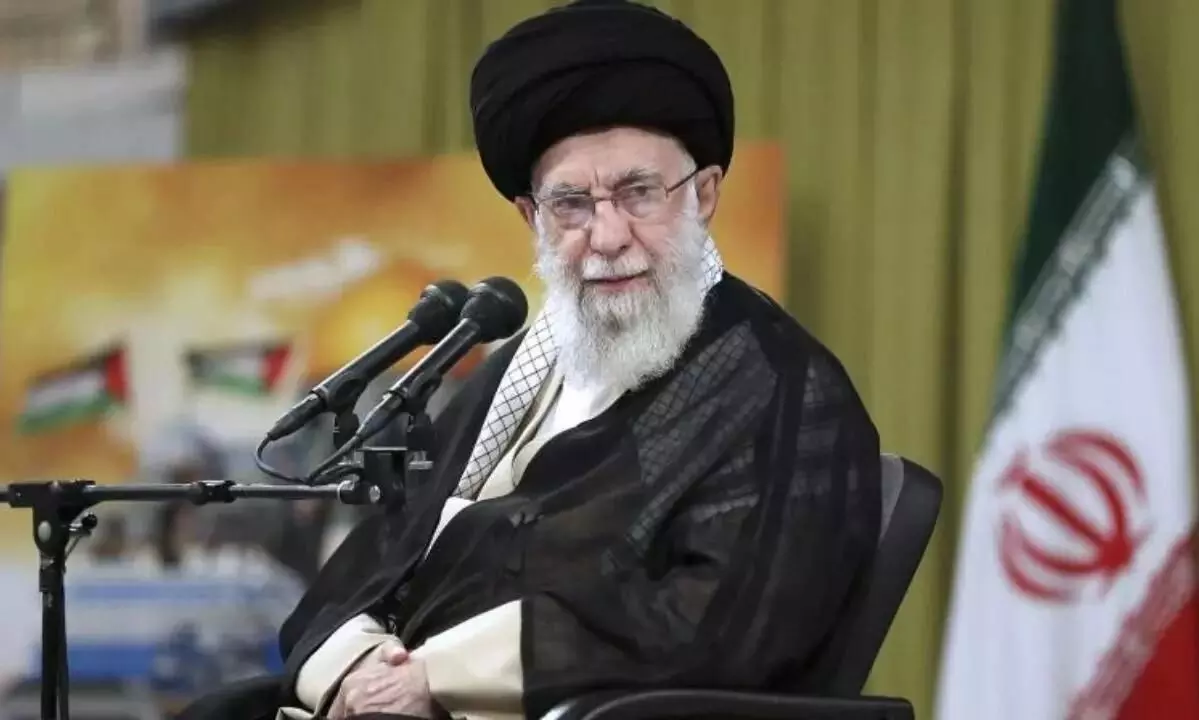
Iran’s Khamenei raises Muslim suffering, India replies let critics look at their own minorities
text_fieldsAmid the persecution of marginalized communities, including minority communities like Muslims, Christians, and Dalits —particularly in BJP-ruled states over lynching related to cow slaughter, cattle smuggling, church attacks, and the targeting of missionaries alleging forced religious conversions—which has been raised on many occasions by the US and UN-affiliated groups, Iran too has tagged India as a place where Muslims suffer.
Iran’s Supreme Leader Sayyid Ali Hosseini Khamenei included India in a list of locations where he claimed Muslims are suffering, alongside Gaza and Myanmar. His remarks on Monday, made in a social media post, prompted a strong response from India, which labelled the comments as “misinformed” and “unacceptable.”
In his statement, Khamenei criticised what he perceives as indifference towards the plight of Muslims globally, emphasising that Muslims should be aware of the suffering faced by their co-religionists in various countries such as Gaza, Myanmar and India.
“The enemies of Islam have always tried to make us indifferent with regard to our shared identity as an Islamic Ummah. We cannot consider ourselves to be Muslims if we are oblivious to the suffering that a Muslim is enduring in #Myanmar, #Gaza, #India, or any other place,” an X post from Khamenei read.
India’s Ministry of External Affairs responded with a detailed statement condemning Khamenei’s remarks. The ministry accused the Iranian leader of making baseless observations about India’s treatment of minorities and urged countries making such comments to first address their own human rights records.
This incident is not the first time Khamenei has commented on the state of Muslims in India. In March 2020, following the riots in northeast Delhi, he described the events as a “massacre of Muslims” and urged the Indian government to address the alleged actions of extremist groups to prevent isolation from the Islamic world. His statement at that time also included a call for action against what he described as extremist Hindus and their parties.
Still earlier, Khamenei had expressed concern over the situation in Kashmir in August 2019, shortly after the Indian government revoked Article 370, which granted special autonomy to Jammu and Kashmir. He urged the Indian government to adopt a just policy towards Kashmir and prevent the reported oppression of Muslims. India had rejected these comments too, asserting that they were misplaced and did not reflect the reality on the ground.
The criticism from Iran is part of a recurring pattern. Tehran has previously voiced concerns about India’s treatment of its Muslim population following the 2002 Gujarat riots and the 1992 demolition of the Babri Masjid. In these instances, Khamenei and other Iranian officials condemned the violence and called for international support for Muslims in India.
Khamenei’s comments about Kashmir date back to 2010, when he first highlighted the issue in the context of broader regional conflicts involving Gaza and Afghanistan. His statements on Kashmir were part of a broader discourse on Muslim struggles in various parts of the world. Since then, he has periodically recalled the topic, underscoring Iran’s longstanding interest in the region.
Despite the tensions, the diplomatic relationship between India and Iran remains multifaceted, with economic and strategic interests influencing bilateral interactions. The latest exchange reflects ongoing sensitivities around religious and ethnic issues and illustrates the complex dynamics at play in international relations.






















